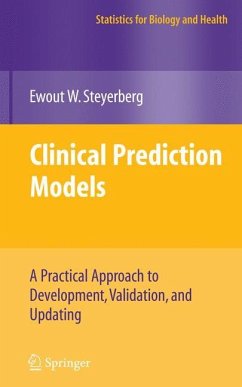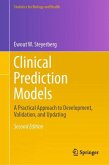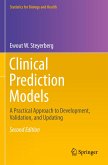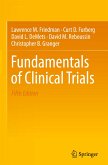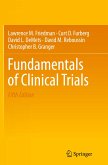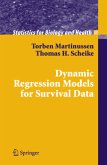Despite advances in statistical approaches towards clinical outcome prediction, these innovations are insufficiently utilized in medical research. This book provides information on how modern statistical concepts and regression methods can be applied.
Prediction models are important in various fields, including medicine, physics, meteorology, and finance. Prediction models will become more relevant in the medical field with the increase in knowledge on potential predictors of outcome, e.g. from genetics. Also, the number of applications will increase, e.g. with targeted early detection of disease, and individualized approaches to diagnostic testing and treatment. The current era of evidence-based medicine asks for an individualized approach to medical decision-making. Evidence-based medicine has a central place for meta-analysis to summarize results from randomized controlled trials; similarly prediction models may summarize the effects of predictors to provide individu- ized predictions of a diagnostic or prognostic outcome. Why Read This Book? My motivation for working on this book stems primarily from the fact that the development and applications of prediction models are often suboptimal in medical publications. With this book Ihope to contribute to better understanding of relevant issues and give practical advice on better modelling strategies than are nowadays widely used. Issues include: (a) Better predictive modelling is sometimes easily possible; e.g. a large data set with high quality data is available, but all continuous predictors are dich- omized, which is known to have several disadvantages.
Prediction models are important in various fields, including medicine, physics, meteorology, and finance. Prediction models will become more relevant in the medical field with the increase in knowledge on potential predictors of outcome, e.g. from genetics. Also, the number of applications will increase, e.g. with targeted early detection of disease, and individualized approaches to diagnostic testing and treatment. The current era of evidence-based medicine asks for an individualized approach to medical decision-making. Evidence-based medicine has a central place for meta-analysis to summarize results from randomized controlled trials; similarly prediction models may summarize the effects of predictors to provide individu- ized predictions of a diagnostic or prognostic outcome. Why Read This Book? My motivation for working on this book stems primarily from the fact that the development and applications of prediction models are often suboptimal in medical publications. With this book Ihope to contribute to better understanding of relevant issues and give practical advice on better modelling strategies than are nowadays widely used. Issues include: (a) Better predictive modelling is sometimes easily possible; e.g. a large data set with high quality data is available, but all continuous predictors are dich- omized, which is known to have several disadvantages.
From the reviews:
"This book covers an important topic, because these prediction models are essential for individualizing diagnostic and treatment decision making. The topic is of increased importance as evidence-based medicine is increasingly implemented and as scientific and technological advances reveal new potential predictors of outcome. This book presents an approach for developing, validating, and updating prediction models.... [I]t provides ways to optimally utilize regression techniques to predict an outcome.... This book is written in a clear and accessible style.... [A]valuable resource for anyone interested in developing or applying a prediction model." (Todd A. Alonzo, American Journal of Epidemiology, 2009; Vol. 170, No. 4)
"Overall I think this is a well-written book, which will have a wide appeal. The idea of defining a strategy to deal with clinical prediction problems might be somewhat controversial, but considering the variable quality of statisticalanalyses that appear in the medical literature, I believe such an approach is desirable. The book appears to have struck a good balance between practical examples and descriptions of statistical techniques.... It is refreshing to see a practical book applying many modern regression techniques to real problems." (David Ohlssen, Journal of Biopharmaceutical Statistics, Issue 6, 2009)
"Dr Steyerberg ... aims to provide an insight and also a practical illustration on how modern statistical concepts and regression methods can be applied in medical prediction outcomes. The book...will be of interest to those who work in medical cybernetics and indeed all cybernetics and systems researchers who are studying such medical problems and wish to apply statistical approaches and methodologies. It is worth examining the detailed contents list ... and individual chapters may be of particular value to potential readers." (C. J. H. Mann, Kybernetes, Vol. 38 (6), 2009)
"The book ... will be of interest to those who work in medical cybernetics and indeed all cybernetics and systems researchers who are studying such medical problems and wish to apply statistical approaches and methodologies." (C. J. H. Mann, Kybernetes, Vol. 38, No. 6, 2009)
"...and excellent practical guide for developing, assessing and updating clinical models both for disease prognosis and diagnosis. The book's clinical focus in this era of evidence-based medicine is refreshing and serves as a much-needed addition to statistical modeling of clinical data. The book assumes a basic familiarity with modeling using generalized linear models, focusing instead on the real challenges facing applied biostatisticians and epidemiologists wanting to create useful models: dealing with a plethora of model choices, small sample sizes, many candidate predictors and missing data. This is an example-based book illuminating the vagaries of clinical data and offering sound practical advice on data exploration, model selection and data presentation. ...The author uses simple simulations using a few reproducible R commands to motivate the use of imputation methods and shrinkage. These simple but illuminating illustrations are one of the highlights of the book and serve as excellent pedagogical tools for motivating good statistical thinking. ..." (International Statistical Review 2009, 77, 2)
"This is an excellent text that should be read by anyone performing prediction modeling. ... the text has three audiences epidemiologists and applied biostatisticians who want to develop or apply a prediction model health care professionals who want to judge a study that presents a prediction model and theoretical researchers ... . I found the book very useful and I believe clinicians and policy makers will be similarly well served. ... All are excellent summaries for readers and provide links to resources for further investigation." (Chris Andrews, Technometrics, Vol. 53 (1), February, 2011)
"This book covers an important topic, because these prediction models are essential for individualizing diagnostic and treatment decision making. The topic is of increased importance as evidence-based medicine is increasingly implemented and as scientific and technological advances reveal new potential predictors of outcome. This book presents an approach for developing, validating, and updating prediction models.... [I]t provides ways to optimally utilize regression techniques to predict an outcome.... This book is written in a clear and accessible style.... [A]valuable resource for anyone interested in developing or applying a prediction model." (Todd A. Alonzo, American Journal of Epidemiology, 2009; Vol. 170, No. 4)
"Overall I think this is a well-written book, which will have a wide appeal. The idea of defining a strategy to deal with clinical prediction problems might be somewhat controversial, but considering the variable quality of statisticalanalyses that appear in the medical literature, I believe such an approach is desirable. The book appears to have struck a good balance between practical examples and descriptions of statistical techniques.... It is refreshing to see a practical book applying many modern regression techniques to real problems." (David Ohlssen, Journal of Biopharmaceutical Statistics, Issue 6, 2009)
"Dr Steyerberg ... aims to provide an insight and also a practical illustration on how modern statistical concepts and regression methods can be applied in medical prediction outcomes. The book...will be of interest to those who work in medical cybernetics and indeed all cybernetics and systems researchers who are studying such medical problems and wish to apply statistical approaches and methodologies. It is worth examining the detailed contents list ... and individual chapters may be of particular value to potential readers." (C. J. H. Mann, Kybernetes, Vol. 38 (6), 2009)
"The book ... will be of interest to those who work in medical cybernetics and indeed all cybernetics and systems researchers who are studying such medical problems and wish to apply statistical approaches and methodologies." (C. J. H. Mann, Kybernetes, Vol. 38, No. 6, 2009)
"...and excellent practical guide for developing, assessing and updating clinical models both for disease prognosis and diagnosis. The book's clinical focus in this era of evidence-based medicine is refreshing and serves as a much-needed addition to statistical modeling of clinical data. The book assumes a basic familiarity with modeling using generalized linear models, focusing instead on the real challenges facing applied biostatisticians and epidemiologists wanting to create useful models: dealing with a plethora of model choices, small sample sizes, many candidate predictors and missing data. This is an example-based book illuminating the vagaries of clinical data and offering sound practical advice on data exploration, model selection and data presentation. ...The author uses simple simulations using a few reproducible R commands to motivate the use of imputation methods and shrinkage. These simple but illuminating illustrations are one of the highlights of the book and serve as excellent pedagogical tools for motivating good statistical thinking. ..." (International Statistical Review 2009, 77, 2)
"This is an excellent text that should be read by anyone performing prediction modeling. ... the text has three audiences epidemiologists and applied biostatisticians who want to develop or apply a prediction model health care professionals who want to judge a study that presents a prediction model and theoretical researchers ... . I found the book very useful and I believe clinicians and policy makers will be similarly well served. ... All are excellent summaries for readers and provide links to resources for further investigation." (Chris Andrews, Technometrics, Vol. 53 (1), February, 2011)

